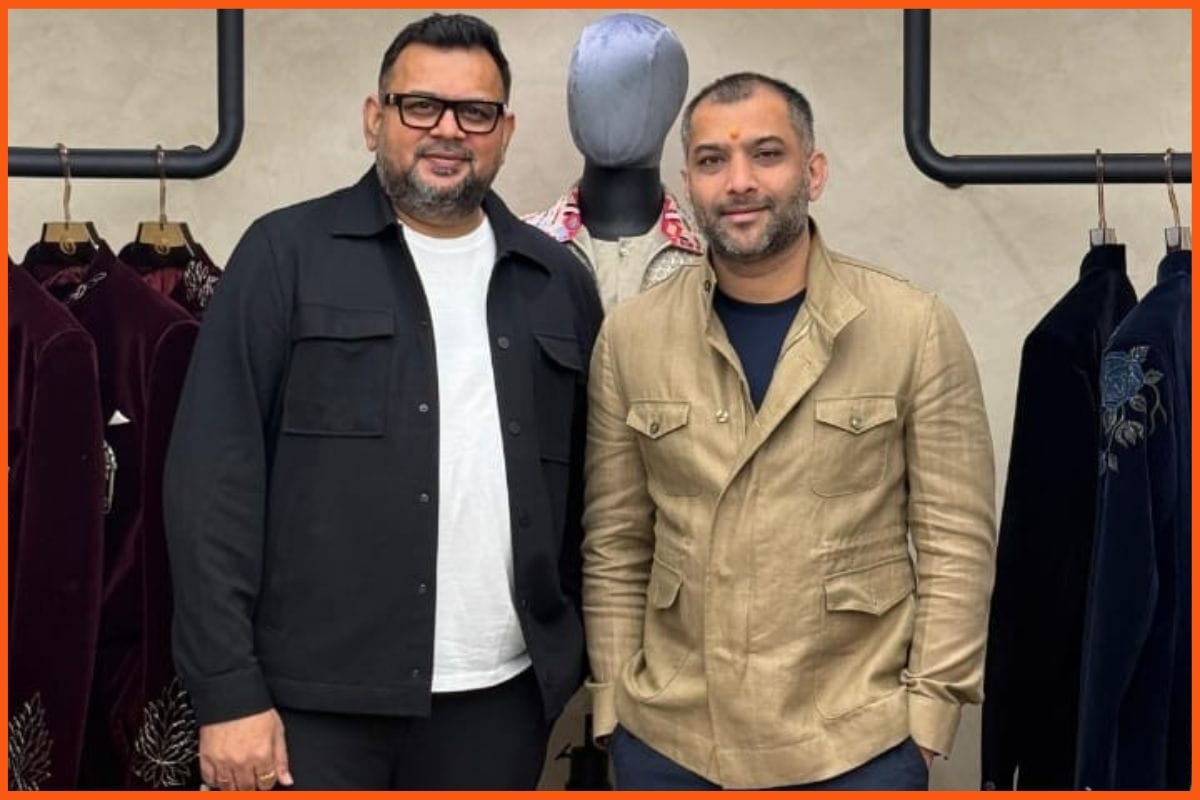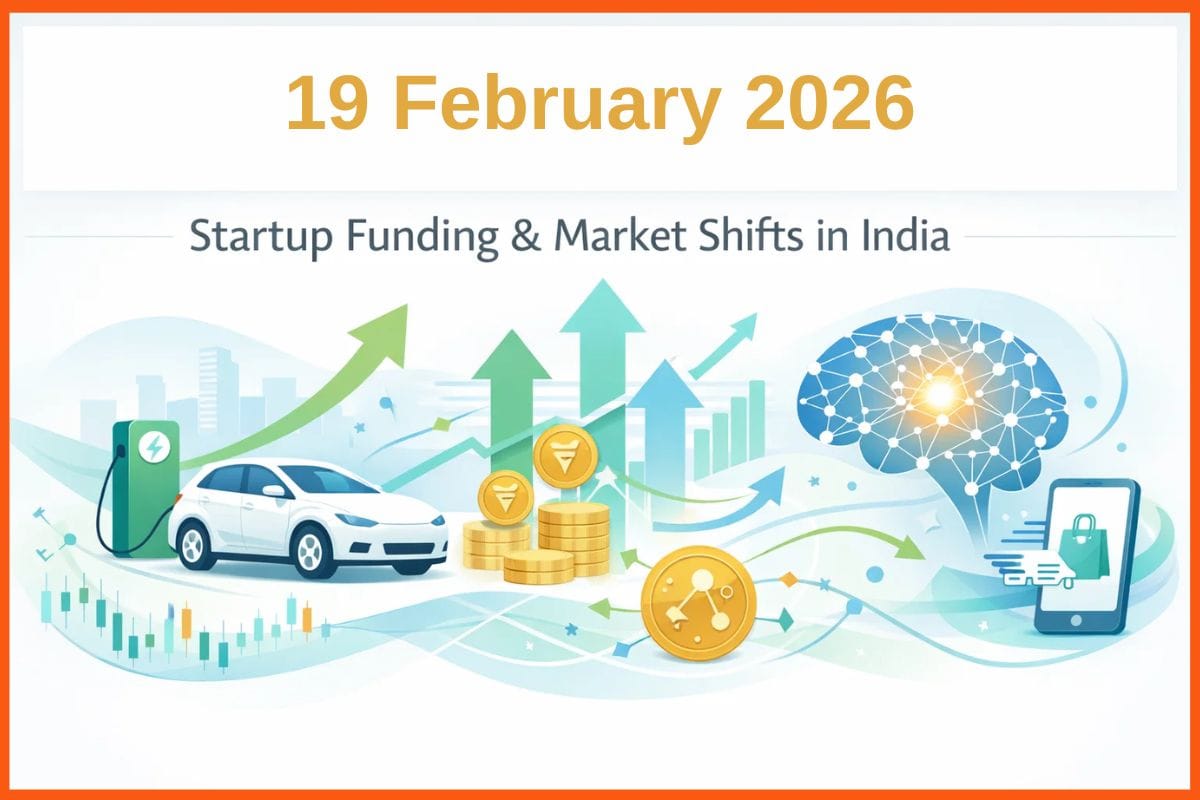An IIT Delhi Alumnus startup - AppDynamics aquired by Cisco for $3.7 Billion
📄Company Profiles
Jyoti Bansal, the former alumni of IIT Delhi, founded AppDynamics in 2010. In January 2017, Cisco acquired AppDynamics for the whopping amount of $3.7 Billion. Through this aquisition, they intend to create a combined portfolio for unprecedented application, business and infrastructure analytics. So here's the journey of Founder & Chairman of AppDynamics - Jyoti Bansal in his own words.
What a journey! 12 years ago today, in January of 2008, I was a young software engineer with a dream and determination to start my company. I spent my days making the rounds on Sandhill Road in Silicon Valley, trying to generate interest from venture capitalists. On nights and weekends, I sat on my couch in San Francisco and wrote code.
In the nine years since, AppDynamics grew from that initial dream to a successful technology company that today is a strategic software vendor for the world’s largest enterprises.
First and foremost, I want to sincerely thank all of the incredible AppDynamics employees — past and present — who were indispensable in getting us to where we are today. I am a firm believer that our successes in life are never individual journeys. I am honored and humbled to have worked with such talented and committed individuals. Your belief in our mission, your passion, your creativity and your hard work have made all of the difference. You are “AppDynamos,” indeed.
In this journey of the last nine years, building the company as Founder & CEO for first eight years, and as Founder & Chairman for last one year, I learned a lot. However, one of the most important things I learned is that you have to have a big dream, a big goal, and a big vision; BUT, you have got to implement it “one milestone at a time.” There will be stumbles — but you get up and keep going until you reach that next milestone.
The beginning called Appdynamics
Every startup begins with a vision — a burning desire to solve some problem. In 2008, I was fully convinced that software would transform the world for the better and change everything we do. But I was equally convinced that if the whole world was going to run on software, someone had to make sure all of that software worked really well, all the time! I knew from my previous work experience that existing solutions weren’t cutting it. My burning desire to solve that problem became the genesis of AppDynamics.
From a personal perspective, for as long as I can remember, I wanted to be an entrepreneur. I grew up in a small town in India, and on weekends I’d help my Dad with his small business. I loved it. My other passion was software, and so I went to college (IIT Delhi) to get my degree in Computer Science. As a software engineer, I’ve always felt like software was like “magic clay” and I could use that magic clay to sculpt solutions to so many different problems. I wanted to build companies that would leverage the power of software to make a difference in the world. I brought that dream to Silicon Valley as a 21-year-old fresh out of college and AppDynamics for me was the beginning of fulfilling that personal dream.
Getting funded
Once you have an idea and a vision, the first milestone for any startup is to secure funding. Only one in 25-30 software startups gets institutional venture funding, so as an engineer turned first-time entrepreneur, it was a bit of a challenge in the beginning. I pitched about 20 VCs and got many rejections. I quit my job, continuing to pitch VCs during the day, while coding during nights and weekends. After a few months, I had refined my story significantly and was able to get the company off the ground with $5.5M of Series A funding in April 2008.
Also Read: Funded Indian Startups with Investors [June Updated]
Building the Initial team at Appdynamics
Suddenly I had $5.5M in the bank and one employee: me. I needed a team! For the founding team, you need some very special traits. You need people who are not only very talented in what they do, but who also love the uncertainty and pace of an early startup. The first call I made was to my good friend and one of the most creative and passionate engineers I knew — Bhaskar Sunkara. I was fortunate that Bhaskar agreed to come onboard as our first founding team member. Over time he became my close partner in leading and building our products at AppDynamics and today he leads our product organization as CTO and Head of Product.
It took us another three to four months to assemble a full team of founding engineers, all with those special traits. It wasn’t easy, but by being patient and selective in our hiring, we were able to assemble a winning team.
Finding product/market fit
It’s one of the earliest and the hardest tests for any startup — finding the initial product/market fit (that is, a good market for the product you are planning to sell). Eight out of 10 startups fail at this stage.
There were times at AppDynamics when we didn’t think we would make it. The economy was awful. It was 2009 — one of the worst times to raise any additional venture capital. I knew that if we launched our product and hired sales teams before we were 100℅ sure we had identified a strong product/market fit, we might run out of cash and fold.
It took us 15 months and few key pivots to find our product/market fit and ship a good v1 product, a product we knew we could sell a lot. The key was talking to many potential customers, re-thinking our assumptions, iterating and redesigning until we got to that point. Our first paying customer was a company called Yap (now part of Amazon) in October 2009.
The Launch- Appdynamics
Soon, we had a handful of paying customers and a very healthy pipeline of interested prospects. It was time to take the next step — investing in sales and marketing. So the next major milestone was to launch the company out of stealth. We hired our first few marketing and sales employees and publicly launched AppDynamics in February 2010. The shop was open for business.
We soon launched a free version of our product AppDynamics Lite. Because of our highly differentiated product, its ease-of-use and our large number of free trials, demand skyrocketed. Now we were in the “hyper-growth” phase and ready for the next step.
Scaling Sales to a Competitive Advantage
In 2011, I met Dev Ittycheria (now our Board member and CEO of MongoDB) for breakfast. He asked me to articulate the primary competitive advantages that were fueling our rapid growth. I listed out all the massive advantages we had in our product (the core architecture of our transaction tracing, the self-learning instrumentation, the ease-of-use, etc). He then encouraged me to think about what could be possible if we could build an enterprise sales force that was every bit of a competitive advantage as was our product.
That inspired me to make that the next big company milestone. I resolved to learn everything I could about the art of enterprise software sales. We invested heavily in bringing some of the best enterprise software sales management into the company and over time built a highly skilled and methodical enterprise sales force. Meeting that milestone was key to our continued hyper growth for many years to come.
Customer Success 2.0
As we were rapidly scaling up sales to the world’s largest enterprises, I realized we needed to re-think the traditional customer support and delivery models that most enterprise software companies employed. Simple fact was, most large enterprises were unhappy with their software vendors, as illustrated by Net Promoter Scores (NPS) — a common measure of how satisfied your customers are — averaging around 20. (Contrast that with leading consumer tech companies like Amazon, Google and Apple, all of whom typically boast NPS scores of around 70!)
At AppDynamics, we wanted our next milestone to set a new standard — build a customer support and delivery model, which we called Customer Success 2.0, that would delight enterprise customers in the same way leading consumer tech companies delight their customers. The key elements of that were about having a strong process to hold ourselves accountable for delivering the business value we promised during the sales cycle, and to directly align our teams’ incentives with the success of the customers — both things very different than traditional approaches.
Establishing the culture for a long-lasting business at Appdynamics
The next big milestone for us was to make sure we established a very strong cultural foundation, one that we could build on for years or even decades. Also, I realized that for this to be a long-term success, I had to personally own it and drive it. We defined our core cultural values in 2012 — relentless focus on customer success across the organization; open, data-driven and disruptive thinking; constant innovation and pushing the boundaries; collaboration and working together as one team; winning and consistently producing big results. I firmly believe that because our employees live these values on a daily basis, we are where we are today.
From single product to a platform
Our market for our first product, Java APM, was massive. And we had only captured a fraction of it. But I realized that to become a long-term strategic partner to the IT teams in large enterprises, we had to evolve from one product to a broad platform. We set expansion of our product to a broad platform — the application intelligence platform — as our next major company milestone.
Most startups are challenged when trying to expand the product portfolio. Many times the core product teams find it tough to master the necessary adjacent technology areas. And often the sales teams find it harder to sell follow-on products.
Early on, we stumbled. But once we adopted a “Startups within a Startup” model — bringing the same very small startup mindset to new products as we brought to our first product — we were successful.
In a couple of years, we had multiple very strong products (APM for .NET/ PHP/ Python/ Node.js, Real User Monitoring for Mobile & Browser, Database Monitoring, Server Monitoring, Synthetic Monitoring, Application Analytics and others) as part of our comprehensive platform.
Also Read: 20 Alternatives of Raising Funds from Investors
Continued rapid growth
As we established ourselves as a strategic platform for the enterprise, built the right cultural foundation in the company including a relentless focus on customer success, and instituted a world-class sales force, we continued to grow rapidly and meet many other milestones as part of that growth journey. That included triple-digit sales growth for many years in a row, multiple rounds of financing (and a “unicorn” status, for what it’s worth), and our global expansion.
After eight intense years of running the company from the driver’s seat as Founder and CEO, about a year ago I handed over day-to-day operations of the company, and now I focus on helping with our vision and strategy.
Today’s milestone, and the many milestones ahead
All of the above led us to where we are today. My congratulations and sincere thank you to all of my journey mates in getting us here. However, the journey continues — and I couldn’t be more excited about the opportunity ahead as AppDynamics continues to achieve many more big milestones over the coming years, joined together on a bigger journey with Cisco.
Disclosure: This is a curated column. The statements, opinions and data in these publications are solely those of the individual authors and contributors and not of StartupTalky or its editor(s). The article was originally published by the author here.
Must have tools for startups - Recommended by StartupTalky
- Convert Visitors into Leads- SeizeLead
- Website Builder SquareSpace
- Run your business Smoothly Systeme.io
- Stock Images Shutterstock





